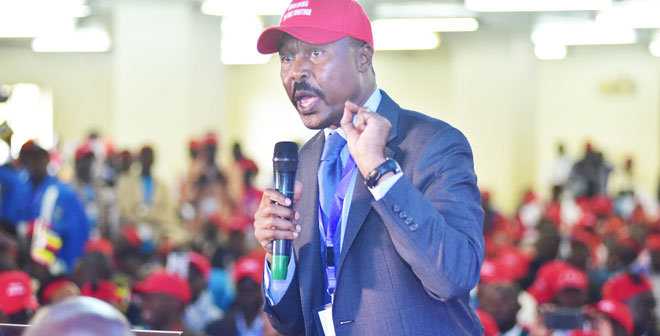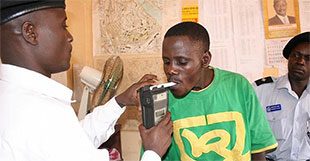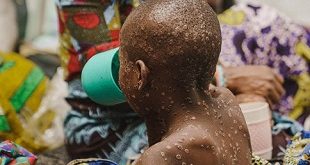
Why liberal minded Ugandans should celebrate the breakup of FDC and rally behind its enlightened leaders
THE LAST WORD | ANDREW MWENDA | The inevitable is happening. Uganda’s largest opposition party, the Forum for Democratic Change (FDC), is breaking up. Twenty two out of its 36 Members of Parliament (MPs) are quitting the party to form another. They will initially present the new party as a pressure group to avoid the requirement that they seek re-election upon crossing the floor. However, one year to the 2021 elections they will officially announce the new party whose leader will most likely be Mugisha Muntu.
This is a welcome move. FDC has been under the control and direction of an extremely uncouth and intolerant faction led by its presidential candidate for life, Dr. Kizza Besigye. This group acts like a millenarian cult. It does not tolerate dissent, however mild. Every dissenter is labelled a mole of President Yoweri Museveni. Criticism of their cult leader, however mild and well intentioned, is treated as sacrilegious. It relies on intimidation, blackmail, slander and lies to subdue opponents.
This is the first time in the political history of Uganda that we have developed a political party as intolerant as the radical extremist wing of the FDC. It is a group that has no limits on what it is willing to do to destroy its opponents, both real and perceived. Equally it has no limits on what weapons it is willing to employ to gain and capture power. One must worry what it would do to retain power if it ever had a chance to capture it.
For two years now I have waged a near-lonely ideological war against this radical extremist group. Many enlightened and liberal-minded leaders and members of the FDC have quit the party. Many others have remained members but gone silent. I often talk to these people. Some are MPs, others very senior politicians. They all tell me they are afraid to speak out because they will be labelled moles and destroyed through slander and false accusations on social media. It is tragic that a political party born to protest suppression of divergent views inside the National Resistance Movement (NRM) practices this behaviour in worse form.
The radical extremists of the FDC have buried the liberal-democratic foundations on which that party was born. The biggest frustration I have had is with many Ugandans who position themselves as liberal-minded in the media, academia, civil society and politics. They have exhibited enormous courage in opposing Museveni’s dictatorial tendencies. However, they have also demonstrated a deafening and dangerous silence on the growing intolerance of these FDC radical extremists. This has helped radical extremists consolidate their control over the party.
Here has been the tragedy of the struggle for democracy in Africa. Claims by any group to be fighting for democracy are taken on face value. Its internal operations and the behaviour of its leaders and members are rarely questioned. And in many cases these groups have captured power and produced governments that are worse than those they overthrew. The lesson for Uganda is simple but fundamental: denouncing Museveni’s dictatorial tendencies is not enough to make a political movement liberal-democratic. Its modus operandi is more critical. FDC is the best positioned party to capture power from NRM. The radical extremists are its strongest faction. Hence a capture of power by FDC is a victory to radical extremism.
Whatever the democratic deficits manifest inside NRM, Museveni individually and his party and government generally are fairly tolerant and liberal-minded. I built my career as a journalist exposing the rot in his government alongside its dictatorial tendencies. Yet throughout this period I frequently visited Museveni at State House and we argued over our differences. He would come to my radio show. He would telephone me to express disagreement over opinions or facts I had written. The same applies to NRM and UPDF leaders. They were regular guests on my radio show and my major sources of information.
The difference between Besigye and Museveni and between FDC and NRM became manifest to me when I began criticising Besigye and his radical extremists. Besigye personally cannot tolerate dissent. The radical extremists around him push this behaviour to the extreme. I am aware that he personally works with them to make vicious attacks on his critics on social media. In many ways his actions reflect those of Adolf Hitler. This may shock many readers to believe that I am exaggerating to compare Besigye with Hitler. But let us listen to the German dictator.
In his autobiography, Mein Kampf (My Struggle) Hitler says that he observed the organisation of the Social Democratic Party in Germany and learnt that one of the major sources of their success was the use of “physical and spiritual terror.” Let us look at his views of “spiritual terror.”
“I understood the infamous spiritual terror which this movement exerts particularly on the bourgeoisie which is mentally nor morally equal to such attacks,” Hitler wrote in Mein Kampf, “It unleashes a veritable barrage of lies, slander and personal attacks against whatever adversary seems dangerous until the nerves of the attacked person break down. This is a tactic based on precise calculation on all human weaknesses and its results will lead to success with almost mathematical certainty.”
Besigye and his radical extremists may not have read Hitler. They have, of course, deluded themselves into the belief that they are a force for democracy. However, their strategies on social media are exactly what Hitler learnt from the SDP and once in power employed with deadly success.
There is a misleading conception – in Africa and the Western world – that the fall of tyranny is a triumph of democracy and liberalism. This is even the more intriguing given that most experience in postcolonial Africa has disproved this belief. Indeed, the fall of many tyrannies on our continent has led to renewed tyrannies (Uganda in 1971, Liberia in 1980, Ghana in 1966, 1971, 1981), Nigeria etc., sometimes to anarchy (in Uganda in 1979, Somalia in 1991, Liberia in 1990, Sierra Leone in 1990 and Libya in 2011).
All liberal minded Ugandans (as opposed to opportunists and other self-interested pretenders) need to come out openly and constantly to denounce radical extremism in FDC. They must push Besigye (if they believe he is democratic minded) to denounce it as well. Or they must demonstrate their commitment to liberal values by supporting Muntu and those courageous FDC MPs who have said enough is enough to the conspiracy of silence that has allowed radical extremism to grow and consolidate inside the party.
****
amwenda@independent.co.ug
 The Independent Uganda: You get the Truth we Pay the Price
The Independent Uganda: You get the Truth we Pay the Price



